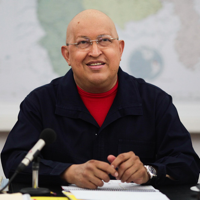One of the subjects dominating discussions of Latin American politics this year has been the June 30 revelation that Venezuelan President Hugo Chávez is being treated for cancer. Very little is known about his illness, other than the not-so-encouraging news that he has received four, possibly five, chemotherapy treatments, most them in an undisclosed location in Cuba.
A bombshell accompanied by such secrecy has raised speculation about the future of Venezuelan politics. It seems that all scenarios, ranging from Chávez's death to his full recovery, are possible, which makes the presidential election scheduled for October 2012 one of the most uncertain in Latin American history.
Receiving less attention, however, is the fact that not just the Venezuelan president is seriously ill: So is his foreign policy. Taking advantage of the low levels of popularity of the United States in Latin America around 2003 and widespread discontent over the dire economic crisis of 1999-2002, Chávez launched the most anti-American, anti-capitalist foreign policy the region had seen since the Cold War ended. He called on Latin American nations to join his crusade, offering ample economic rewards to those willing to follow along. By 2004, the United States began to consider Venezuela the biggest security threat in the region. For a while, with the region electing more and more governments on the left, Chávez's influence seemed uncontainable. In 2008, the Bolivarian Alliance for the Peoples of the Americas (ALBA), Chávez's most important alliance in the region, peaked with nine member-states.

